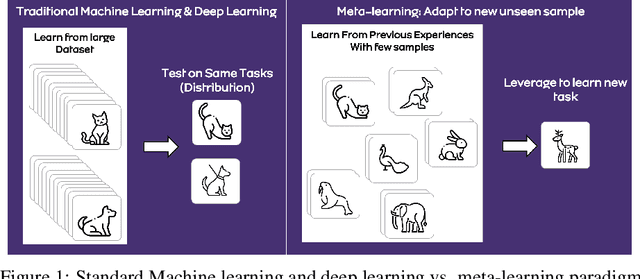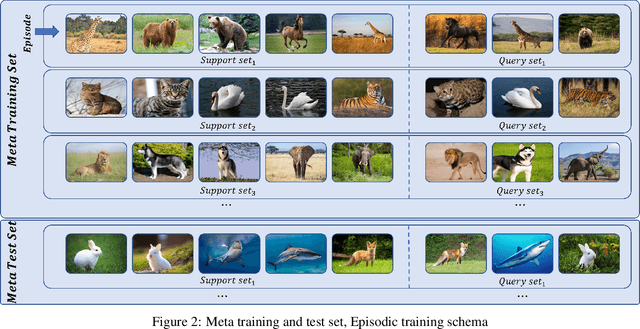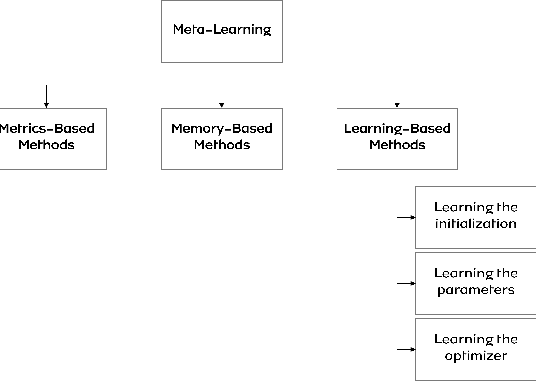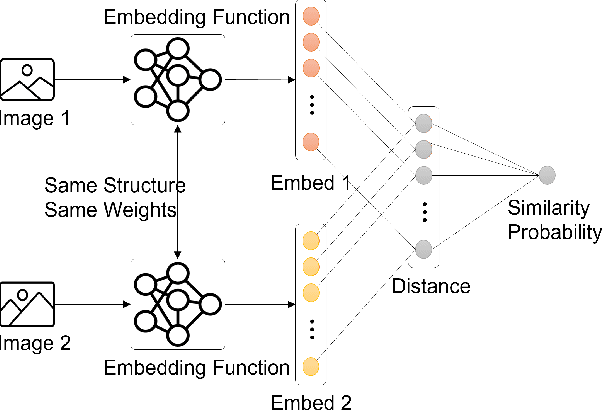Meta-learning approaches for few-shot learning: A survey of recent advances
Paper and Code
Mar 13, 2023



Despite its astounding success in learning deeper multi-dimensional data, the performance of deep learning declines on new unseen tasks mainly due to its focus on same-distribution prediction. Moreover, deep learning is notorious for poor generalization from few samples. Meta-learning is a promising approach that addresses these issues by adapting to new tasks with few-shot datasets. This survey first briefly introduces meta-learning and then investigates state-of-the-art meta-learning methods and recent advances in: (I) metric-based, (II) memory-based, (III), and learning-based methods. Finally, current challenges and insights for future researches are discussed.
 Add to Chrome
Add to Chrome Add to Firefox
Add to Firefox Add to Edge
Add to Edge